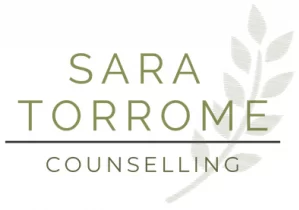It is difficult to tell the difference between PTSD and grief – they are both powerful emotions that can leave you feel overwhelmed and the symptoms of both overlap in many ways. However, one clear difference is that grief is a normal reaction to loss whereas PTSD is defined as a mental disorder. That said, prolonged grief, or complicated bereavement is more challenging than normal grief, which can lessen after several weeks or months and, like PTSD, requires professional guidance.
What are the symptoms of complicated bereavement?
Losing a loved one is one of most emotional challenges you will ever face in your life. The process of grief that most people go through is completely normal. You can experience feelings of anger, sadness, denial and bargaining before reaching some kind of acceptance to enable you to move forwards with your life and live with your grief in a positive way.
However, sometimes, grief can have a more dramatic impact on your health and well being, which, without professional help, does not diminish over time. This could occur , although not always, in the case of sudden rather than expected bereavement.
Some of the symptoms include:
- Bouts of anger or bitterness
- Insomnia and nightmares
- Strong feelings of responsibility for/ unfinished business with the person who has died
- An inability to continue as normal
- A sense of futility or hopelessness
- Avoiding social situations
- Intrusive thoughts about your loss or the person who has died
With complicated bereavement, these feelings continue for more than a couple of months after the person has died. It can have a huge impact on your life, resulting in difficulties at work, at home and with your relationships. If you are feeling overwhelmed by the loss of a loved one, please get in touch so we can discuss how I can help you make sense of your grief so you can move forward in a positive way.
What is PTSD?
PTSD was a term originally coined to describe the impact upon veterans of the Vietnam War (previously known as ‘shell shock’). Nowadays, it is a clearly defined condition which covers a range of symptoms caused by trauma. This includes physical trauma, psychological trauma, neglect and all forms of abuse, often, but not always taking place in childhood. PTSD can also be a result of major accidents and natural disasters.
What are the symptoms of PTSD?
There are 5 key symptoms or reactions of PTSD, some of which may be experienced in complicated bereavement, but for a diagnosis of PTSD, there needs to be evidence of all 5.
- Exposure to actual or threatened death, serious injury, abuse or sexual violence
- Avoiding external reminder of the trauma, such as people, places or things, or internal reminders, like thoughts, feelings or memories
- Intrusive nightmares, thoughts or memories
- Changes in mood such as blaming yourself, not trusting others or a belief that the world is unsafe
- Big changes in behaviour or arousal, such as angry outbursts, hyper vigilance, being easily startled or jumpy, or struggling with sleep
If you are suffering with feelings that may be associates with PTSD or have experienced a traumatic event in your life which has negatively impacted your feelings, emotions and behaviour, you should seek professional help. As a qualified counsellor who specialises in bereavement and loss, I can help you find ways to cope with those feelings and move forward positively.
